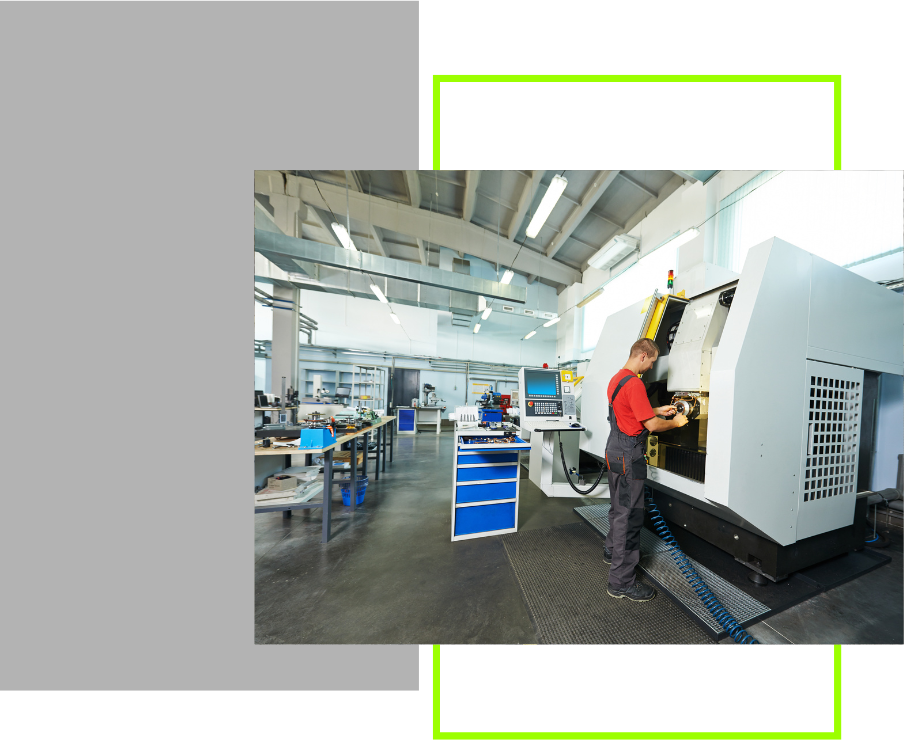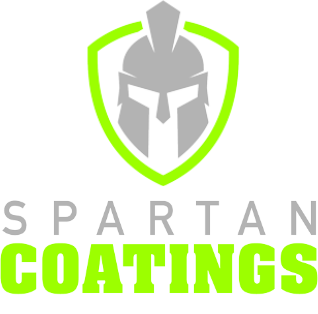
Machine Shops

Machine Shops
Machine shops in today's fast-paced and demanding industrial environment face a myriad of challenges. These challenges range from maintaining the durability of floors under constant stress to ensuring the safety and aesthetic appeal of the workspace. The nature of work here is characterized by heavy machinery, abrasive materials, and chemical exposures, calls for a solution that is robust, reliable, and long-lasting. This is where high-quality coating solutions, specifically designed for such demanding environments, play a crucial role.
Challenges Of Machine Shop Environments
Understanding the challenges is the first step in addressing them effectively. One of the primary concerns is the wear and tear of floors. The floors are subject to constant heavy traffic, the weight of machinery, and the impact of tools and materials. This continuous stress can lead to cracks, chips, and other forms of damage. If left unaddressed, this damage can escalate, leading to safety hazards and costly repairs.
Moreover, machine shops often deal with oils, coolants, and other chemicals, which can spill and seep into the floor. Traditional flooring materials can absorb these chemicals, leading to staining, degradation, and even structural damage over time. This not only affects the appearance of the floor but also poses a significant safety risk as it can lead to slips and falls.
Cleanliness And Aesthetic Considerations
In addition to durability and chemical resistance, another challenge is maintaining the cleanliness and hygiene of the space. Machine shops generate a significant amount of debris, dust, and other contaminants. If the flooring is not designed to be easily cleaned, these contaminants can accumulate, affecting both the working environment and the machinery's performance.
The aesthetics are also important. A well-maintained, visually appealing shop not only creates a more pleasant working environment for employees but also makes a positive impression on clients and visitors. The challenge lies in finding a solution that combines functionality with aesthetics, creating a space that is both practical and inviting.
In the face of these challenges, modern coating solutions like polyurea and epoxy coatings, topped with a polyaspartic finish, offer an ideal remedy. These materials have been specifically developed to withstand the harsh conditions of industrial environments like machine shops.
Benefits Of Special Floor Coatings In Machine Shops
Polyurea coatings are known for their exceptional durability and fast curing time. This means that they can be applied quickly, reducing downtime, and once set, they create a tough, resilient surface capable of withstanding heavy loads, impacts, and abrasions. Their elasticity also makes them ideal for floors that may shift or settle over time, preventing cracks and damage.
Epoxy coatings, on the other hand, provide a high level of chemical resistance, making them ideal for machine shops where chemical spills are a common occurrence. These coatings form a seamless and impermeable barrier, preventing chemicals from penetrating and damaging the floor. They are also renowned for their strong adhesive properties, ensuring a long-lasting bond with the substrate.
The final layer of polyaspartic coating adds not only a protective finish but also an aesthetic touch to the flooring. Polyaspartic coatings are UV resistant, which means they do not yellow or fade over time, preserving the floor's appearance. They are also available in various colors and finishes, allowing for customization according to the shop's branding or aesthetic preferences.
Beyond their practical benefits, these coatings also contribute to a safer working environment. Their anti-slip properties reduce the risk of accidents, a crucial factor in busy machine shops. They are also easy to clean and maintain, helping to keep the workspace hygienic and free from debris.
In the bustling world of machine shops, where every detail counts towards efficiency and productivity, the importance of a high-quality flooring solution cannot be overstated. Spartan Coatings steps up to this challenge with a revolutionary approach, offering advanced coating solutions that are tailored to meet the diverse and demanding needs of these dynamic environments. Imagine a floor that not only withstands the rigorous demands of heavy machinery and chemical exposures but also uplifts the aesthetics of your workspace, creating an environment that employees are proud to be a part of. Contact us today for an estimate.
Frequently Asked Questions
Q1: How do specialized coatings affect the precision in a machine shop?
A1: Specialized coatings, particularly on floors, indirectly contribute to the precision of machinery. A stable and level floor, free from vibrations and disruptions caused by cracks or uneven surfaces, ensures that machinery operates at optimal levels. Coatings like epoxy and polyurea provide a smooth, durable surface, which helps in maintaining the alignment and calibration of precision equipment.
Q2: Can floor coatings help in thermal regulation and energy efficiency?
A2: Yes, certain floor coatings can assist in thermal regulation. Epoxy coatings, for instance, have insulating properties that help in maintaining consistent temperatures. This can be particularly beneficial in environments where temperature control is crucial for machine operation. Additionally, reflective coatings can improve lighting efficiency, reducing the need for additional lighting and thereby saving energy.
Q3: How do advanced coatings combat the issue of static electricity?
A3: In static electricity can pose a risk to both workers and sensitive electronic equipment. Some advanced coatings are designed to be electrostatic dissipative (ESD) or anti-static. These coatings safely and effectively dissipate static electricity, reducing the risk of electric shocks and protecting electronic components from static damage.
All Rights Reserved | Spartan Coatings

